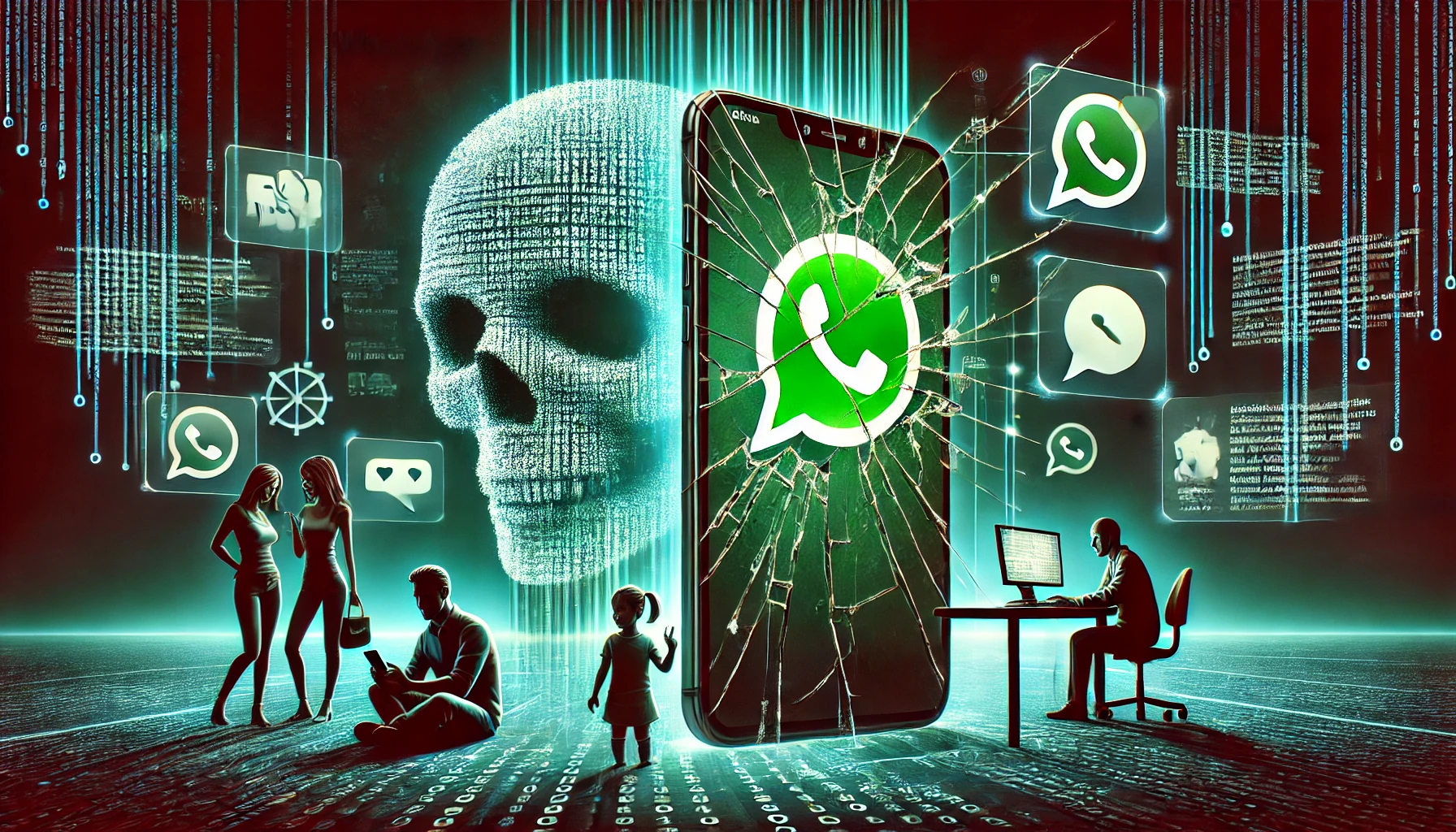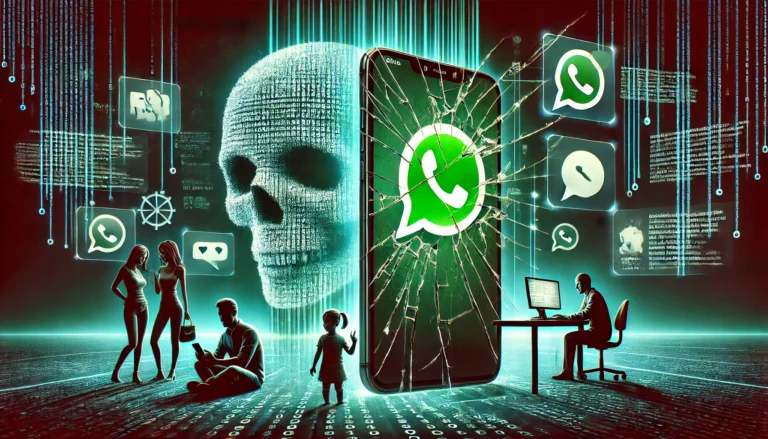
WhatsApp isn’t just another app on your phone—it’s the lifeline of everyday communication. It’s how families keep in touch across borders, how small shops confirm your order, and how colleagues quietly plan the next big project. Take it away for even a day, and you’ll feel the gap instantly.
That’s why the recent announcement from WhatsApp isn’t just another software update buried in the settings. At the end of August 2025, the company rushed out an urgent patch to fix a “zero-click” vulnerability—a type of security hole so dangerous that simply receiving a malicious message could hand attackers the keys to your phone. No taps, no downloads, no warning. For anyone who treats WhatsApp as their main communication channel, this isn’t a far-off tech problem. It’s a direct threat to your privacy, your work, and in some cases even your personal safety.
What Makes Zero-Click Attacks So Dangerous
Most people are familiar with phishing messages: you click a suspicious link and suddenly expose your device. Zero-click attacks are more sinister because they don’t need any action at all. Simply receiving a maliciously crafted message or file can trigger the vulnerability and give attackers control.
These attacks usually exploit the way an app processes incoming data. If the code isn’t perfectly secure, attackers can slip through unnoticed. Once inside, they can steal data, listen to calls, or even spy through the camera. Because there is no interaction, victims often don’t realize anything has happened until much later.
Zero-click attacks are particularly attractive to attackers who want to stay hidden. They don’t rely on human error, which means they can be aimed at anyone—even those who are usually cautious online.
The WhatsApp Security Flaw Explained
The vulnerability patched in August 2025, known as CVE-2025-55177, affected iOS and macOS versions of WhatsApp, including WhatsApp Business. The flaw was tied to the device-linking feature, which allows people to connect their WhatsApp account to multiple devices.
In simple terms, attackers could abuse this feature by sending specially crafted synchronization messages. Those messages could trick WhatsApp into fetching content from an external source, giving attackers the ability to run malicious code without the user’s knowledge.
Security experts warned that this flaw could be chained together with another Apple vulnerability, CVE-2025-43300, found in the way iOS handles images. That bug allowed memory corruption when a malicious image was processed. When combined, the two flaws created a powerful entry point: a WhatsApp message could trigger the Apple bug and compromise the device fully.
Although the number of confirmed targets is relatively small—reports suggest fewer than 200 individuals—it shows the kind of sophisticated techniques attackers are now using. High-value targets like journalists, business leaders, or legal professionals are often first in line, but once such tools are developed, they rarely remain limited to only a handful of people.
WhatsApp and Zero-Click: Not the First Time
This isn’t the first security scare involving WhatsApp. Back in 2019, the Pegasus spyware campaign made headlines when it was revealed that attackers used a flaw in WhatsApp’s call feature to install spyware. Victims didn’t even need to answer the call—it was enough that it rang.
Since then, WhatsApp has improved its security, but the reality is clear: widely used apps are also widely targeted. Attackers know that compromising them gives access to millions of users. And because WhatsApp is central to personal and professional life, it remains a high-value target for those who want to monitor communications or harvest sensitive information.
Why This Hits Close to Home
For many people, WhatsApp isn’t just one of many apps—it’s the app. Businesses use it to arrange orders, professionals use it for client communication, and entire communities rely on it to share information quickly. That level of reliance means any flaw is immediately relevant.
There are also practical issues to consider. Not everyone updates their devices right away. Some people are still running older phones that don’t receive the latest system patches. Others may postpone updates because they’re afraid of apps slowing down or storage space running out. These habits create a window of opportunity for attackers to strike.
When an exploit requires no clicks at all, even careful users can’t rely on their own behavior as protection. The only defense is timely updates, and that is where awareness becomes so important.
Practical Steps You Should Take
If you use WhatsApp, updating immediately is non-negotiable. Here are key steps to protect yourself and your contacts:
- Update WhatsApp today. Visit the App Store and install the latest version. Do the same for your phone’s operating system.
- Review linked devices. Open WhatsApp settings, check which devices are connected, and remove any you don’t recognize.
- Enable two-step verification. This adds an extra password to your account and makes it much harder for attackers to take over.
- Back up and reset if needed. If you receive an official warning from WhatsApp or security experts, consider a full factory reset. It wipes hidden malware but requires restoring your data.
- Talk about it. Share reminders with friends, family, and colleagues to update their apps. The more people patch quickly, the less room attackers have to operate.
Wider Lessons for Everyday Users and Businesses
This incident offers lessons beyond WhatsApp itself. It highlights how interconnected security has become. An attacker exploiting WhatsApp may actually rely on an Apple flaw or another service to complete the attack. Security is now a chain—strong only if every link is solid.
For professionals, this means communication platforms should be treated as part of business infrastructure, not just personal tools. A vulnerability in a messaging app can disrupt customer service, damage reputation, or expose sensitive discussions.
For individuals, the lesson is that updates are not optional. Each patch released by app developers and device makers is there for a reason. Delaying them leaves the door open to risks that are invisible until it’s too late.
Looking Ahead
Zero-click exploits will continue to be a major concern. They require advanced skills to develop, but once discovered, they tend to spread. Over time, techniques that were once used only by state-level actors trickle down to criminal groups.
That means everyone should expect more attacks that don’t rely on suspicious links or obvious scams. Instead, silent and invisible methods will become more common. Awareness, timely updates, and community-level vigilance will be the only reliable defenses.
Conclusion
The WhatsApp emergency update of August 2025 shows just how fragile our digital world can be. A single flaw in a messaging app can turn millions of devices into potential entry points for attackers.
For those who depend on WhatsApp to stay connected with colleagues, customers, and loved ones, the message is clear: update now, encourage others to do the same, and make cybersecurity part of everyday life. It doesn’t require being an expert—it simply requires being proactive.
Sources
- https://thehackernews.com/2025/08/whatsapp-issues-emergency-update-for.html
- https://www.bleepingcomputer.com/news/security/whatsapp-patches-vulnerability-exploited-in-zero-day-attacks/
- https://www.reuters.com/sustainability/boards-policy-regulation/whatsapp-finds-new-hacking-campaign-targeting-fewer-than-200-people-2025-08-29/
- https://www.lansweeper.com/blog/vulnerability/whatsapp-zero-day-vulnerability-allows-spyware-installation/





